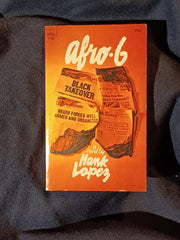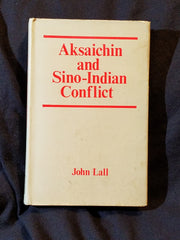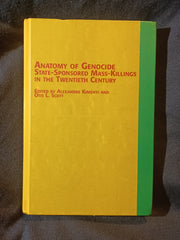Impending Crisis of the South: How To Meet It by Hinton Rowan Helper. First edition
Impending Crisis of the South: How To Meet It by Hinton Rowan Helper. Burdick Brothers. 1857. No listing of how many thousand copies and with identical 1857 on the title page and copyright page. 5 1/"" x 7 3/4" 420 pages Hardcover with no dust jacket. Copper lettering on spine may be somewhat faded, but still quite legible. Light cover edge wear. Some bumping to the top and bottom of the spine. Book was gifted in pencil on the front end paper in very neat script. There is heavy foxing on the end papers and on the edges of the page block, but only very little foxing in the text. No other previous owner markings. No tears, folds or creases to pages. This original binding is tight with no looseness to pages. Not ex-library, not remaindered and not a facsimile reprint. For sale by Jon Wobber, bookseller since 1978. IL26a
"The Impending Crisis of the South: How to Meet It is an 1857 book by Hinton Rowan Helper, who declares himself a proud Southerner.[1]: vi It was written mostly in Baltimore, but it would have been illegal to publish it there, as he pointed out.[1]: 360 It was a strong attack on slavery as inefficient and a barrier to the economic advancement of whites. The book was widely distributed by Horace Greeley and other antislavery leaders, and infuriated Southerners. According to historian George M. Fredrickson, "it would not be difficult to make a case for The Impending Crisis as the most important single book, in terms of its political impact, that has ever been published in the United States. Even more perhaps than Uncle Tom's Cabin, it fed the fires of sectional controversy leading up to the Civil War; for it had the distinction of being the only book in American history to become the center of bitter and prolonged Congressional debate".[2]: 542 [note 1] In the North it became "the book against slavery."[3]: 75 A book reviewer wrote, "Next to Uncle Tom's Cabin (1852), Hinton Helper's critique of slavery and the Southern class system, The Impending Crisis of the South (1857), was arguably the most important antislavery book of the 1850s." - Wikipedia
"The Impending Crisis of the South: How to Meet It is an 1857 book by Hinton Rowan Helper, who declares himself a proud Southerner.[1]: vi It was written mostly in Baltimore, but it would have been illegal to publish it there, as he pointed out.[1]: 360 It was a strong attack on slavery as inefficient and a barrier to the economic advancement of whites. The book was widely distributed by Horace Greeley and other antislavery leaders, and infuriated Southerners. According to historian George M. Fredrickson, "it would not be difficult to make a case for The Impending Crisis as the most important single book, in terms of its political impact, that has ever been published in the United States. Even more perhaps than Uncle Tom's Cabin, it fed the fires of sectional controversy leading up to the Civil War; for it had the distinction of being the only book in American history to become the center of bitter and prolonged Congressional debate".[2]: 542 [note 1] In the North it became "the book against slavery."[3]: 75 A book reviewer wrote, "Next to Uncle Tom's Cabin (1852), Hinton Helper's critique of slavery and the Southern class system, The Impending Crisis of the South (1857), was arguably the most important antislavery book of the 1850s." - Wikipedia













